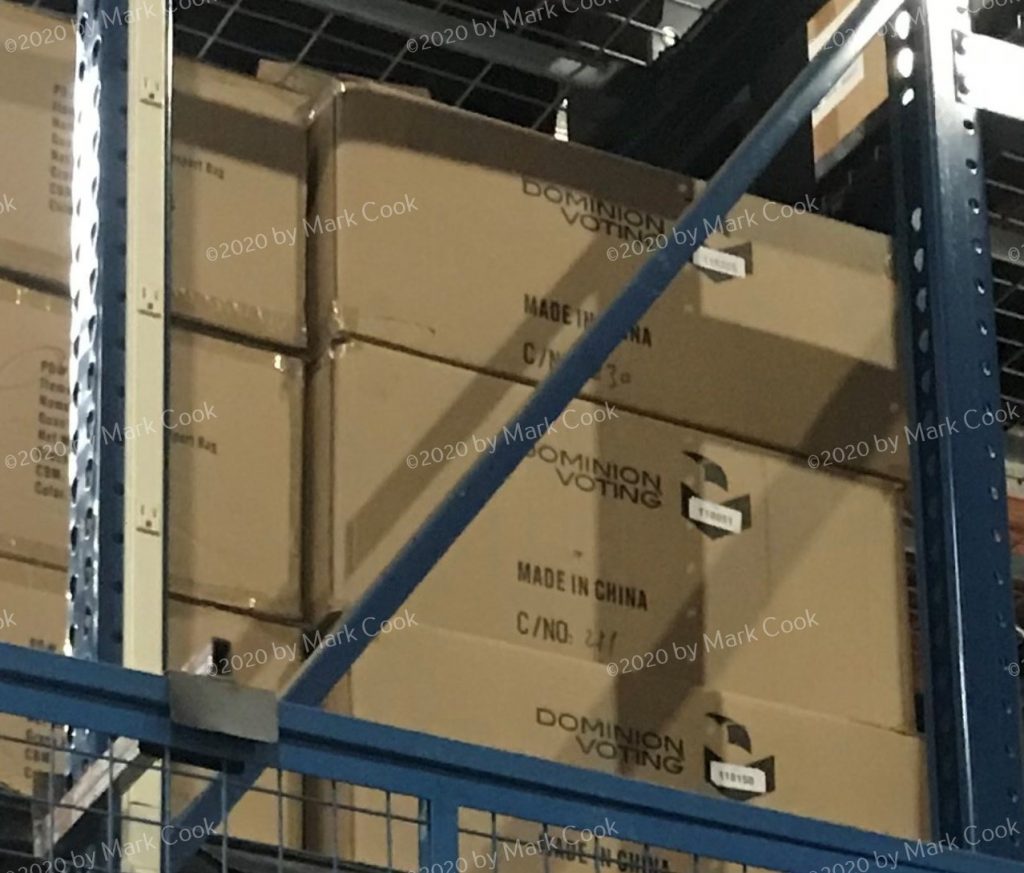Something is sure rotten in the state of Georgia…
GA Secretary of State Brad Raffensperger seems like he has a secret. The man in charge of ensuring fair elections in the Peach State really doesn’t want anyone looking at the actual ballots from the Nov 3rd U.S. general election.
There is an old proverb — those with nothing to hide don’t try to hide things.
Fair election activists from VoterGA.org have worked hard and succeeded in gaining access to ballots from Fulton County, GA for a forensic audit. A judge will rule on the procedures later this month.
This is scaring the pants off those who enabled the massive election fraud in November’s general election and the GA Senate run-off in January.
We have seen the same obstruction of justice in Maricopa County, AZ and other swing-states which were hit by fraud.
The GA Secretary of State’s office filed an amicus brief yesterday in support of corrupt Fulton County election officials.
You can read the brief in the file below.
—————————
Here are some amazing highlights from the legal filing:
Raffensperger suggests he is simply ‘protecting the public’s interest’ in allowing on the ballot images to be used, and not the actual paper records.
The Secretary respectfully requests that the Court permit Petitioners to inspect ballot images only, and deny Petitioners’ request to inspect and scan ballots.
Petitioners have submitted to the Court a proposed order granting their Motion to Unseal,
which would grant Petitioners sweeping and unprecedented access to all ballots. (the horror)
Raffensperger also told an ‘alternative fact’ in his brief, claiming VoterGA wants to move the ballots from their secure location for the audit. CDMedia spoke to VoterGA and this is simply not true.
First, it is important to clarify the difference between “ballots” and “ballot images.”
“Ballots” include (1) paper ballots produced by ballot marking devices (“BMDs”) used in in-person advanced voting and election-day voting; 1 (2) absentee-by-mail paper ballots; and
(3) UOCAVA paper ballots. Ballots are then scanned through optical voting scanners selected
and furnished by the State of Georgia pursuant to O.C.G.A. § 21-2-300. Once scanned, an
electronic ballot image is created and stored on a memory card (“ballot images”).
So in short, Raffensperger wants VoterGA to only have access to the ‘images’ that were created by equipment furnished by the GA Secretary of State’s office and not the actual ballots that show the intended anonymous vote of GA citizens.
The arrogance is quite shocking; although, after Nov 3rd, we shouldn’t be shocked at anything.
Raffensperger declares that only he is allowed to see what actually happened.
The Elections Code is furthermore clear that it is only authorized elections officials who
are legally permitted to verify and tabulate ballots in an election.
And, he doesn’t want any outside technology that can detect counterfeit ballots.
Moreover, the scanning and tabulation of ballots is only permitted under Georgia law to
be conducted on the equipment selected and furnished by the State of Georgia.
There is simply no legal basis for unauthorized third parties such as Petitioners to electronically scan ballots using their own equipment in order to conduct their own independent tabulation of ballots.
Allowing Petitioners to conduct their own scan on uncertified and unknown equipment is contrary to law and would set a new and dangerous precedent going forward.
Perhaps Raffensperger should add to his brief that only Chinese equipment is allowed to scan American ballots.

Finally, Raffensperger declares its simply too late for anyone to do anything about the massive election fraud which occurred on Nov 3rd.
To the extent that Petitioners are using this open records act enforcement action as a pretext for challenging the legality of ballots cast in the general election, it is too late for them to assert such a challenge now, and any request for relief would be barred by the applicable statute of limitations.
After reading the amicus brief in full filed by the GA Secretary of State’s office, we believe any intellectually honest person would now want to scan the real ballots, and not just the ‘ballot images’ created by machines.